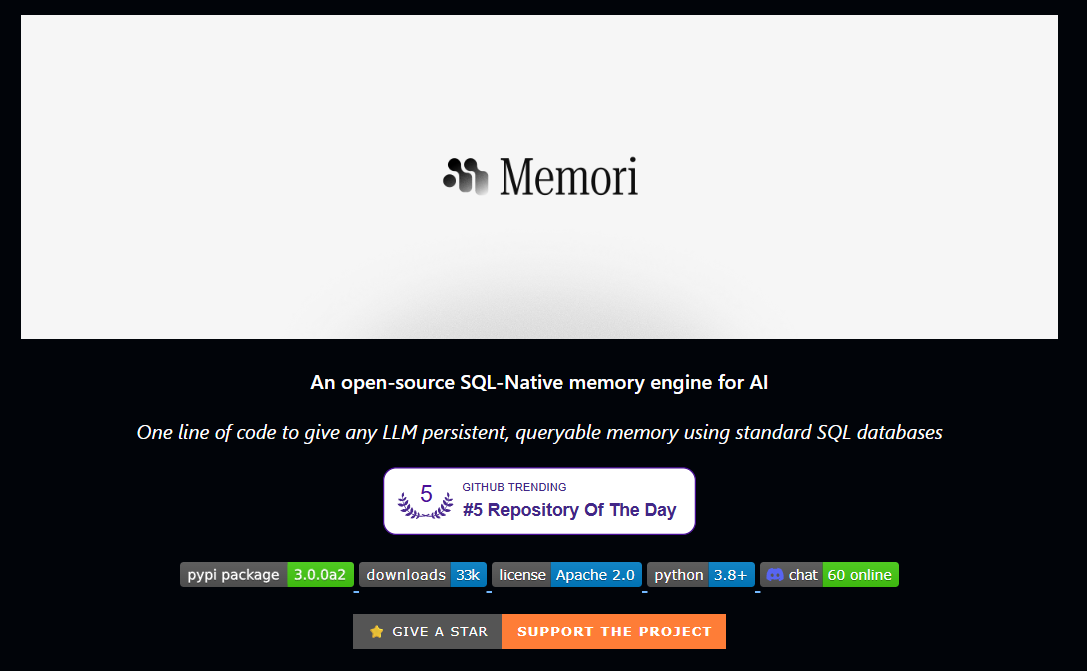[Dev Catch Up # 88] - GPT 5.1, Anthropic disrupts AI-orchestrated cyber-attack, Marble AI spatial intelligence, RAG in Gemini API, Chad IDE, SIMA 2, Memori, Frontend System Design Concepts & more!
Bringing devs up to speed on the latest dev news from the trends including, a bunch of exciting developments and articles
Welcome to the 88th edition of DevShorts, Dev Catch Up!
For those who joined recently or are reading Dev Catch Up for the first time, I write about developer stories and open source, partly based on my work and experience interacting with people all over the globe.
Thanks for reading Dev Shorts! Subscribe for free to receive new posts and support my work.
Some recent issues from Dev Catch up:
Join 8400+ developers to hear stories from Open source and technology.
Must Read
OpenAI has launched GPT 5.1. The release includes GPT 5.1 Instant and Thinking. OpenAI says the models are more warm, conversational, and good at following instructions. GPT 5.1 is available in API. You can now also set the response tone of ChatGPT. Check OpenAI GPT 5.1 post for more details.
If you have been watching AI beyond text, then you may want to check this.
Dr Fei Fei Li says the next step for AI is spatial intelligence. It helps models understand three-dimensional space. Her team at World Labs has launched Marble. It can create three dimensional worlds from text, images & video. Check the World Lab’s Marble post for more interesting details.Google has added the File Search tool to the Gemini API. It is a fully managed RAG system built inside the API. It helps you ground Gemini with your data for more accurate responses. Check Google’s announcement on File Search in Gemini API for the full details.
Just like APIs, frontend apps also need to handle millions of users, load fast, and stay secure. It is not only buttons and forms. It is a system that runs in the user’s browser. Check this Substack post on 21 Frontend System Design Concepts to learn the key techniques of building great frontend.
OSS Highlight of the Week
This week we are featuring Memori. It is an open-source memory engine for AI.
Memori lets any LLM keep context across sessions and remember past chats. You turn it on with a simple call memori.enable(). Memory is stored in SQL databases like SQLite, PostgreSQL, and MySQL which you fully own and control. Check the Memori GitHub repo for more details.
Good to know
We all use LLM API in our agent workflows. But we often do not track token usage or cost. Tools like Langfuse tracks this on the console. But Tokuin gives you quick token and cost checks right from the terminal. Check Tokuin Github repo to know more details.
OpenAI has introduced group chats in ChatGPT. You can now invite people to the same chat to collaborate with each other and with ChatGPT. It works for planning, learning, or small team discussions. Check OpenAI’s post to know about how group chats work in ChatGPT.
In system design, reducing latency and increasing throughput are common goals. This post explains them with a simple example. It also shows how to improve them with caching, CDNs, batching, and better protocols. Check the post on Latency Vs Throughput Vs Bandwidth.
GitHub has published a Copilot developer guide. It walks through writing, debugging, reviewing, and shipping code faster. Check the post to learn how to use GitHub Copilot with examples.
The latest post from JetBrains looks at the Go ecosystem in 2025. Go now has over 5 million developers overall. This post covers the popular frameworks, libraries, and CLI tools Go developers use today. Check the Go ecosystem post to see all of this in one place.
Notable FYIs
Anthropic has detected and stopped an AI orchestrated cyber-attack. A group in China used AI Agents for phishing, data theft, and network scans across many firms. Anthropic confirmed it was a state sponsored campaign using their Claude Code tool. They banned accounts, notified firms, and worked with authorities. Check the post on disrupting AI espionage to know more details.
Y Combinator tweeted about a new tool called Chad IDE from Clad Labs. It is a brain rot style AI coding editor with built in breaks like games and social feeds. It keeps you inside the editor while the AI runs tasks, so you avoid context switching. Check the Clad Labs site to download the editor now.
Baidu has released ERNIE 5.0. It improves in omni modal understanding, creative writing, instruction following, and more. They have also open sourced the ERNIE-4.5 VL thinking model on Hugging Face. Check the links to learn more about the ERNIE models.
Moondream has released real time video analysis with their model. It can analyze live video with surprising accuracy. Check the Moondream’s tweet on real time video analysis to see how far vision models have come.
Langfuse has shared a full walkthrough of how their eval system works. It covers offline evals with datasets, custom scoring, and annotation queues, etc. Check the video to learn Langfuse Evaluation Deep Dive.
Google DeepMind has introduced SIMA 2. This is the next version of SIMA, which was first released last year. It is an agent that can play, reason, and learn with you inside virtual three-dimensional worlds. It not only follows instructions but also thinks about the goal. Check the SIMA 2 post for more details.
That’s it from us with this edition. We hope you are going away with a ton of new information. Lastly, share this newsletter with your colleagues and pals if you find it valuable. A subscription to the newsletter will be awesome if you are reading it for the first time.


